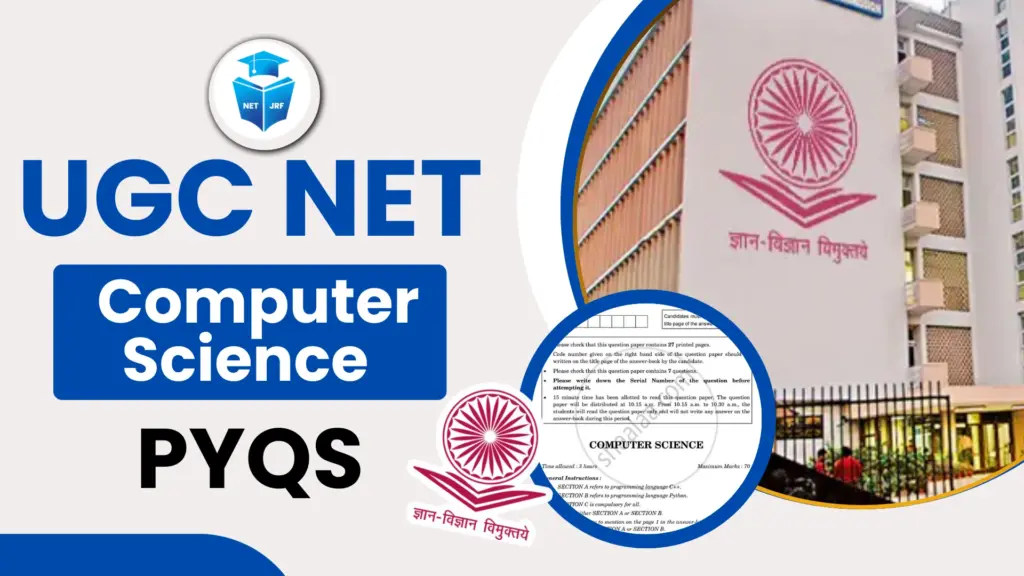JNU PhD Courses allow the students to learn and research in-depth about their field and specialization. JNU is known to be one of the top institutes for higher studies in India and also abroad. Jawaharlal Nehru University has a comprehensive list of PhD programs under various schools and centers which include all kinds of streams starting from social science, humanities, natural science to engineering and more. In this article, we will provide you with details of JNU PhD Courses, including the list of programs available, eligibility criteria, admission process, entrance exam preparation, and more.
JNU PhD Courses
JNU PhD Courses help promote a culture of research, critical thinking and new-age innovation in multiple disciplines. The university takes the admission procedure through a stringent process and selects the deserving candidates for JNU PhD admission. Students can enroll for the PhD Courses in JNU if they have passed their Master’s degree in the relevant field and are willing to take their research a step ahead with a new PhD thesis.
The university offers courses across a number of departments and schools which can help any student to get the right base to proceed forward in the desired fields like political science, biotechnology, economics, and history. The multi-disciplinary and multi-pronged research activities make JNU PhD Courses some of the best.
JNU PhD Courses Subject List
JNU has various schools and centers which offer students an opportunity to pursue their PhD in different streams. The following is the list of schools and departments with some of the most popular PhD specializations available:
| School/Department | Available PhD Specializations |
| School of Social Sciences | Political Science, Economics, Sociology, Geography |
| School of Language, Literature, and Culture Studies | Linguistics, English, Hindi, French, Japanese |
| School of International Studies | International Relations, Diplomacy, Security Studies |
| School of Biotechnology | Molecular Biology, Genetics, Biochemistry |
| School of Engineering | Computer Science, Electrical Engineering, Mechanical Engineering |
| School of Environmental Sciences | Environmental Policy, Ecology, Environmental Management |
In addition to this, many other popular areas of research like law, management, history and many more, have PhD programs offered in JNU.
Eligibility Criteria For JNU PhD Courses
The general eligibility criteria to apply for JNU PhD Courses for different departments include the following. Do note that these may vary slightly according to different departments and streams in the university.
- Academic Qualifications: The aspirants must possess a Master’s degree or equivalent from a recognized university or institution. Candidates must have scored a minimum of 55% marks (50% for reserved category candidates) in the qualifying examination.
- Entrance Exam: Candidates must appear and clear the entrance examination conducted by JNU for admission to the PhD programs.
- Research Proposal: Candidates must submit a research proposal, which highlights their area of research, objectives, and methods to be used in the research.
- Interview: Candidates must also clear the interview conducted by JNU for the shortlisted candidates. The panel will check their potential and willingness to research as well as their understanding of the subject.
Read About JNU PhD Courses Eligibility in Detail
JNU PhD Courses Admission Process
The JNU PhD Courses admission process includes a number of rounds that the candidates have to clear in order to get admission. The following are the steps for the same:
- Online Application: The candidates must fill out the online application form on the official JNU website for PhD Courses. They must also upload all the necessary documents such as academic certificates, a research proposal, and valid ID proof.
- Entrance Examination: Candidates are to then sit for the entrance examination conducted by JNU for PhD admissions. This test includes questions related to general knowledge, research methodology, and also specific subject-related queries. The syllabus for the entrance exam varies for each school and department.
- Shortlisting and Interview: Candidates who perform well in the entrance exam are shortlisted and called for the interview round. The interview is usually conducted by the faculty members of the respective department.
- Final Selection: Successful candidates after the interview are then given admission, and the final list is announced. These candidates receive an offer letter for the same.
Important Dates For JNU PhD Admission 2025
| Event | Date |
| Opening of Application | Typically in March/April |
| Deadline For Application | Typically in May/June |
| Date of Entrance Exam | Usually in June/July |
| Interview Dates | Announced after the exam |
| List of Selected Candidates | Typically in August/September |
Please note that these are the typical dates and they may vary every year. So, it is advisable to keep a check on the official JNU website for further updates regarding the admission dates for the next academic year.
Entrance Exam Syllabus for JNU PhD
The syllabus for JNU PhD entrance exam for different departments include the following:
- General Knowledge and Awareness: Questions that test the candidate’s knowledge about current affairs, general studies and awareness of national and international issues.
- Research Methodology: Questions that test the basic understanding of research, including data collection, data analysis, and interpretation.
- Subject-Specific Knowledge: Questions that test the candidate’s understanding of the specific subject he/she is applying for. For example, candidates applying for a PhD in Economics will be expected to answer questions related to economic theories, macroeconomics, microeconomics, and other relevant topics.
Do note that the syllabus for each school or department may have minor differences so please refer to the specific syllabus mentioned by your department for a detailed understanding and study plan.
Fees and Scholarship for JNU PhD
JNU PhD fees are relatively lower as compared to other universities which also make it a great option for the students. The fee structure for JNU PhD Courses is as follows:
The fee structure for JNU PhD Courses is subject to change but typically varies slightly depending on the department and the category of the student. JNU also offers a range of scholarships and financial support for eligible students. These include:
- JNU Scholarships: JNU Scholarships are merit-based and offered to students with excellent academic records.
- Fellowships: Students can also be eligible for various fellowships and stipends for research offered by the university, government, and other research bodies.
- Financial Assistance: Students may also apply for financial assistance based on need or specific government schemes such as the UGC Scholarship for PhD students.
Tips for JNU PhD Admission Preparation
The following are some key tips to keep in mind for the JNU PhD admission preparation:
- Start Early: The candidates must start their preparation early to give them enough time to cover all the topics and be well prepared.
- Understand the Syllabus: Every department has its own syllabus so candidates should make sure that they are well versed with all the topics that are a part of the syllabus for their chosen field of study.
- Focus on General Knowledge: General knowledge is an important part of the entrance exam so candidates must keep themselves updated with current affairs and general knowledge.
- Practice Previous Year’s Papers: Candidates should also practice previous years’ question papers to get a good understanding of the exam format and to improve their time management skills.
- Prepare for the Interview: Candidates must also prepare for the interview that they will have to clear once they make it to the shortlist after the entrance exam. They must be able to clearly articulate their research proposal and their academic interests in detail.
Conclusion
JNU PhD Courses are an excellent opportunity for students to pursue research and study in their field of interest in depth. With its reputation as one of the best universities in India and abroad, JNU attracts some of the brightest students from across the country and from different parts of the world. If you fulfill the eligibility criteria and follow the admission process properly, you too can be a part of this prestigious university and become a part of path-breaking research in your area of interest.
JNU PhD Courses FAQs
What are the eligibility criteria for JNU PhD Courses?
The eligibility criteria for JNU PhD Courses are as follows: Candidates must have a Master’s degree in a relevant field with a minimum of 55% marks (50% for reserved categories).
How can I apply for JNU PhD Courses?
Candidates can apply for JNU PhD Courses by filling out the online application form on the official website of JNU and submitting all the necessary documents.
What is the selection process for JNU PhD Courses?
The selection process for JNU PhD Courses includes an entrance exam, research proposal submission, and an interview. Shortlisted candidates on the basis of the entrance exam are invited for the interview round.
What are the fees for JNU PhD Courses?
The fees for JNU PhD Courses are relatively low and students may also be eligible for a number of scholarships and fellowships for the same.
How can I prepare for the JNU PhD entrance exam?
The candidates can start by reviewing the syllabus, and then focusing on general knowledge, specific subject knowledge and research methodology. Practicing previous years’ question papers is also very helpful for the preparation of the entrance exam.














